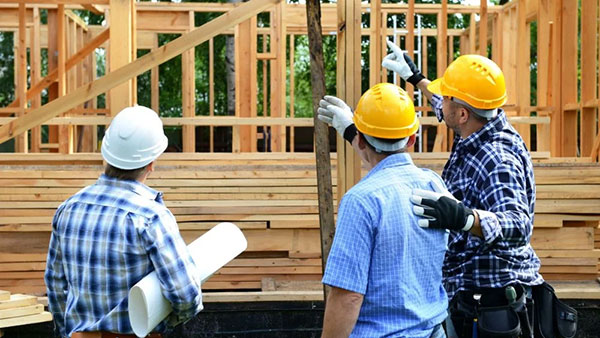A former construction company executive earned a 15 years prison sentence for his role in a scheme to control homeowners associations and took $58 million fraudulently. Often, homeowners association board members fall into the trap of inadvertently and unknowingly signing biased construction contracts.
By being familiar with the needs and provisions of the contract, you can prevent yourself from becoming one of them. Keep reading for some helpful tips for reviewing construction contracts for your community.
Insurance
Hiring a contractor with both a license and the relevant insurance is necessary. Your construction contract ought to additionally include a clause stating that the contractor's insurance protects your homeowners' association. Construction work can result in a significant mess and damage; therefore, you must take precautions to safeguard yourself.
Holdbacks
According to the construction contract you have in place, your homeowner's association should have the right to withhold payment if the work is incomplete or does not meet standards. In most cases, holdbacks will only allow you to withhold a percentage of the total cost rather than the full amount.
However, while negotiating the percentage, you need to ensure that it is low enough that the contractor will agree to it but high enough to warrant the completion of work or delivery of the minimum agreed standards. The contractor might not give a hoot about it if it is insufficient.
The Intent and Scope of the Work
To ensure adherence to the scope's significance, clarifying what you expect the contractor to achieve in great detail is crucial. After signing the contract, the contractor may raise issues they might have been unaware of at the start. This incident may earn you an invoice for an additional cost of labor or materials.
However, it is the contractor's responsibility to examine everything and communicate with you regarding expectations. To empower them, you should spell out very clearly in the contract, avoiding sensitive and detrimental possibilities such as the common issue of "extra expenses" or the hiring of a subcontractor.
Timeframes
When you leave the period out of the agreement, you give the contractor freedom in terms of the deadlines. Ensure that your contract specifies the length of time required to complete the project and the beginning and end dates of the project. It would be best if you established a timeframe for obtaining permits and other necessary items.
Further, it is best to ensure that your contract includes fine provisions in the event of a breach of the deadline. One effective strategy for ensuring that the building project is complete on time is to institute a fee chargeable to the contractor for each day of the missed deadline.
The Terms of Pricing
There is a risk of future surprises due to possible additional expenses charged by the contractors you hire. To prevent this, the board treasurer should ensure that the contract provisions indicate the amount your HOA should pay for the construction work. There are, in general, two distinct types of payment terms:
Lump-Sum
Your homeowners' association (HOA) will pay a predetermined amount to the contractor for the completed work if the arrangement is a lump sum. During negotiations, this sum was agreed upon and included in the contract.
By utilizing this strategy, HOA should only pay the mentioned amount, not more or less, regardless of the actual prices the contractor spent to complete the task. Contractors typically do not favor this kind of arrangement because they will be responsible for additional costs related to unknown variables or some unanticipated situations.
Cost-Plus
A cost-plus arrangement means that the contractor will bill the HOA for the cost of labor and materials, adding a markup to the total. Since the price is not permanent, the contract is often advantageous to the contractor.
If this is the method you are using, the association should try to bargain for a guaranteed maximum price (GMP) to avoid incurring incidental significant or unforeseen fees. In this manner, you will only be responsible for paying up to a specified sum.
This agreement section should also specify how your HOA should make the payments and the due date for those payments. Most contractors will want a down payment, with the remaining balance after completing the work or hitting a specific timeframe.
In Conclusion
Most HOA construction contracts favor the contractor increasing the likelihood of problems for the association; this can cause more complexities than answers. Therefore, an association should always have its attorney review the contract.
Ensure you have gone through the scope of work and payment terms. It is also essential to ask the contractor about his insurance. This information will safeguard your HOA in case of any mess, injury or damage.
You can also learn how to organize your HOA documents for increased efficiency and maintaining a well-run community.





